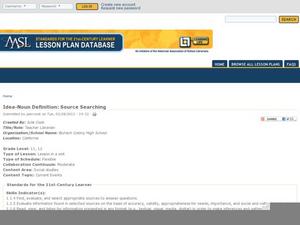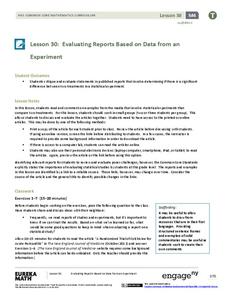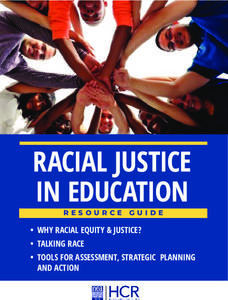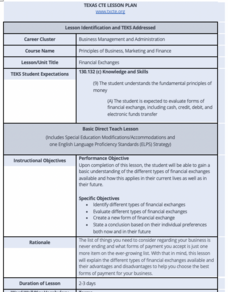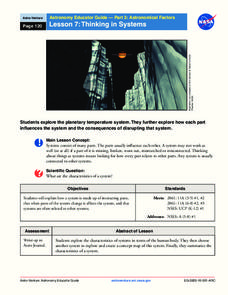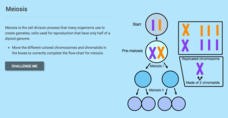Curated OER
Evaluating the Validity of Information-Did the Chinese Discover America in 1421?
Students examine the discovery of the Americas. For this US History lesson, students investigate the theory that Chinese explorers initially discovered America. They collect research from a variety of sources, and distinguish between...
Curated OER
Web Training: Do You Know How to Use the Internet?
Young scholars discover how to use the Internet for research. In this technology lesson plan, students access and use the World Wide Web to research. Young scholars are encouraged to critically consider information they find on the...
Curated OER
Idea-Noun Definition: Source Searching
A great idea for showing language arts pupils the universality of themes, even in the real world! Have class members choose an idea-noun (peace, justice, war, love, etc.) at the beginning of the year or semester. They complete weekly...
Curated OER
Finding and Authenticating Online Information on Global Development Issues
Students discover how to find authoritative resources. For this research skills lesson, students examine strategies for using the Internet effectively to research global development issues.
Curated OER
Political Issues and Opinions
The emergent adults in your US Government class can become informed, self-aware voters. This activity enables them to form an opinion about particular political issues then identify themselves on the political spectrum. Informed and...
Serendip
Golden Rice – Evaluating the Pros and Cons
More than half the world's population eats rice as a daily staple ... imagine if that rice could prevent illness. Scientists genetically engineered rice to include vitamin A for just that purpose. However, room for debate still exists....
EngageNY
Evaluating Reports Based on Data from an Experiment
They say you can interpret statistics to say what you want them to. Teach your classes to recognize valid experimental results! Pupils analyze experiments and identify flaws in design or statistics.
Google
Beginner & Intermediate 5: Evaluating Credibility of Sources
Convey how to determine appropriate and credible online sources with a series of three lessons. After completing the lessons, class members will know what kinds of sources to use, how to identify credible sources, and how tone and style...
Google
Advanced 5: Evaluating Credibility of Sources
How do discerning readers determine bias and credibility? Ask small groups to figure it out! First, each group is provided with either articles or videos that contain bias. They examine the resources, respond to included questions, and...
EngageNY
Calculating Conditional Probabilities and Evaluating Independence Using Two-Way Tables (part 1)
Being a statistician means never having to say you're certain! Learners develop two-way frequency tables and calculate conditional and independent probabilities. They understand probability as a method of making a prediction.
Curated OER
Evaluating an Illinois Earthquake
Students develop awareness of occurrences of earthquakes in Illinois and their past and potential future damage, and examine distribution of earthquakes in central U.S. regions.
Florida Center for Reading Research
Vocabulary: Word Meaning, Inside Information
Support the acquisition of content area vocabulary with this foldable resource. With space for studying three new terms, pupils determine the definition, write a sentence, and provide examples for each word.
Kenan Fellows
Evaluating Sensors and the Impacts of Physiological Stress: Designing a Wearable Device for Rescue Workers
A long-term project has scholars consider ways in which sensors help monitor physiological stress levels of rescue workers. They design and create a portable device for this purpose. Techies to the rescue!
National WWII Museum
The Red Ball Express: Statistics as Historical Evidence
Historians use all kinds of information to make conclusions ... including statistics. Young scholars examine how two historians evaluate The Red Ball Express—a supply line staffed primarily by African Americans—using numbers. The...
National Education Association
Racial Justice in Education Resource Guide
Strive for racial justice within your classroom community with help from an 80-page resource guide. Five modules move scholars through thoughtful, and reflective grand conversations to making a plan, then taking action. Learners write...
Texas Education Agency (TEA)
Financial Exchanges
It's time to cash in some chips and learn about financial literacy. Using the informative resource, scholars identify and evaluate different types of financial exchanges. Pupils then develop a new form of financial exchange and create a...
Newseum
Disinformation Nation: Separating Politics and Propaganda
Separating political rhetoric from propaganda is no small feat. Class members are challenged to examine two different sources about a candidate in an upcoming election and determine whether the primary purpose of the source is to inform...
BW Walch
Wondering About the New Seven (Man-Made) Wonders of the World
Who determines the Seven Wonders of the World, and what criteria is used to evaluate these locations? Discover the efforts to promote cultural diversity and preserve man-made monuments during the world's first-ever global vote in 2007 to...
Carnegie Mellon University
Home Energy Audit
Youngsters make a mental assessment of electricity-consuming appliances in their homes and then evaluate them for the amount of energy consumed. They learn how to use power meters and measure the electrical consumption of several...
Jen London
Building an Argument
Collect evidence and reasons and fill them in on this page to prepare for presenting an argument. Learners can evaluate what they are missing and make sure they fill in each line and bubble before considering their argument complete.
National Park Service
The Power of Remembrance
On every July 4th, we watch fireworks and celebrate our independence, but how is the history of the American Revolution preserved? Four social studies lesson guide learners through different memorials, commemorative objects, and restored...
NASA
Astronomy Mission Module
Yes, scientists say, there is other life in our solar system! And the best place to look is on Europa, a moon of Jupiter. Here, learners mimic the techniques scientists use to gather information about objects in our solar system, write...
EngageNY
Linear Equations in x
What does it mean to solve an equation? The resource revisits the concept of making a linear equation true. Classmates use algebraic methods to transform sides of equations to expressions with fewer terms. They use substitution to...
CK-12 Foundation
Meiosis
"We Are Never Ever Getting Back Together" makes the perfect theme song for meiosis. The simulation encourages scholars to move the chromosomes and chromatids to properly illustrate the meiosis break up. Multiple-choice questions allow...




